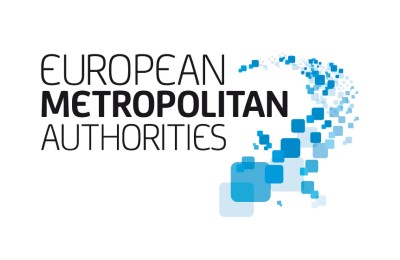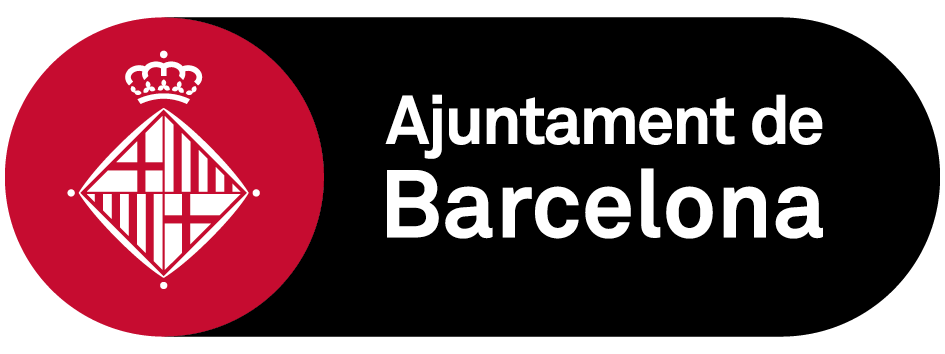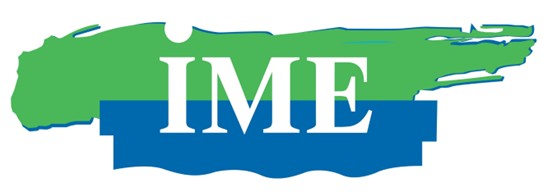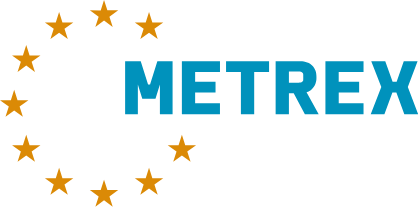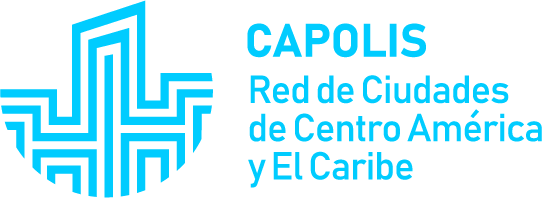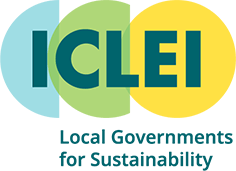
World Metropolitan Summit
EMA Forum | Metropolitan Governance Dialogues | Mediterranean Conference
Barcelona 14-17 OCT 2025
Executive summary
From 14 to 17 October 2025, the European Metropolitan Authorities, the Barcelona Metropolitan Area and the Barcelona City Council will organise and host the World Metropolitan Summit (WMS), an international reference event that marks a turning point in defining the global urban agenda in the closing of the 2015–2030 cycle of the United Nations and the entry into the post-2030 stage.
World Metropolitan Summit
Coinciding with the 10th anniversary of the European Metropolitan Authorities (EMA), the Summit will bring together mayors, metropolitan leaders and political representatives from around the world to forge a shared vision for the future of metropolitan areas. It will also be a space of opportunity to activate the agenda and place the metropolitan dimension within European and international policy debates.
At a time when urban and metropolitan challenges transcend borders and demand collective action, the WMS will serve as a strategic platform to elevate metropolitan governance as a cornerstone of global cooperation. Through high-level political dialogue, thematic sessions and immersive visits, participants will co-create solutions to some of the most urgent problems of our time: access to housing and residential stability, inclusive mobility, urban climate adaptation, digital transformation and water management.
Rethinking metropolitan areas will be one of the guiding threads of the Summit, in a context in which the broad consensus of multilateral agendas seems to be contested (Agenda 2030, New Urban Agenda, Paris Agreement). This rethinking is essential to align metropolitan strategies with global agendas and prepare for the post-2030 framework, consolidating the role of metropolises in multilevel governance and in the provision of global public goods. The Summit will highlight the critical role of metropolitan areas in driving inclusive, resilient and sustainable development. As innovation engines and diversity hubs, metropolises are uniquely located to lead the charge towards a more equitable and interconnected world. The WMS will catalyze this leadership, fostering mutual learning and strategic alliances that will shape international policy frameworks beyond 2030.
The Summit proposes metropolitan governance as an essential response to emerging trends. It will reflect on the need to articulate flexible institutions, capable of coordinating municipalities and diverse actors, and to provide themselves with adequate competences, financing and fiscal instruments to face challenges that transcend administrative borders. The experiences of intermunicipal cooperation, public-private collaboration and international networks of metropolises will be valuable examples to guide the debate towards collaborative, redistributive and global governance models. Metropolitan governance becomes a prerequisite for guaranteeing global public goods (housing, water, climate and data) on the post-2030 horizon.
The conference seeks to move from diagnosis to operational criteria and possible reproducible solutions and instruments for metropolitan areas with different institutional realities.
One of the central themes of the Summit is the urgent and universal challenge of housing. Global trends such as real estate speculation, short-term rents and gentrification that strains urban housing systems, the need for coordinated metropolitan responses has never been greater. The Summit will highlight innovative housing policies and display successful public housing initiatives, offering participants the opportunity to participate in in-depth political debates and on-site learning. By positioning housing as a central pillar of the metropolitan strategy, the WMS will not only address immediate needs, but will also lay the foundations for long-term systemic change, ensuring that metropolises continue to be places of opportunity, dignity and belonging for citizens.
The debate on housing will be placed in a broader framework of transformations that reconfigure metropolises around the world and that currently hinder public action. It will address how demographic changes – from ageing in Europe to rapid urban growth in Africa and Asia – pose new demands in terms of housing, services and mobility. Likewise, the digital revolution and the emergence of artificial intelligence are transforming modes of production, government and citizen participation, opening opportunities but also risks of exclusion and inequality. These factors are added to the infrastructural challenges, with accumulated deficits in transport, energy and sanitation that require massive investments, as well as the economic and financial pressure that accentuates social polarization and fuels gentrification dynamics.
All this has direct consequences on social cohesion and citizen confidence in the institutions.
Two very important transversal axes will also mark the WMS agenda: water and digitalization. Water management appears as an urgent challenge in a context of structural drought and access inequalities that demand new forms of metropolitan cooperation and equitable pricing, as well as resilient investments and circular solutions. The Summit will address the problem as a vital infrastructure and as a human right that must be guaranteed by criteria of territorial equity. Metropolitan areas subjected to water stress face a double urgency: guaranteeing universal access to drinking water and sanitation, and, at the same time, being able to respond to increasingly frequent droughts and floods. The political objective is to be able to move towards a Metropolitan Water Pact that includes commitments such as integrated basin governance, fair pricing, or water circularity to be able to guide the roadmap towards 2030 and 2050.
At the same time, digitalisation and artificial intelligence will be the subject of debate as levers for the modernization of public services and urban planning, with the need to ensure digital rights, data sovereignty and ethical governance of algorithms. The Summit is based on a conviction: digital transformation is only legitimate if it expands rights and capacities for all. The need to create inclusive digital infrastructures, public administrations capable of sustaining them and clearly identified leaderships to be able to legitimise and co-design policies is key to being able to guarantee a strategic approach so that AI provides measurable and quality public value. This approach leads us to highlight once again the importance of impact indicators, equity criteria and audit mechanisms to improve the operational capacity of metropolises, aligning technological innovation, rights and citizen cohesion.
In short, WMS 2025 aims to offer a political and strategic framework so that metropolitan leaders can share experiences, commit to new agendas and move towards collective action and with a real operational capacity post-2030. The ultimate goal is to generate tangible commitments to progress towards fairer, more resilient and inclusive metropolises, capable of leading global transformation in the coming decade.
The World Metropolitan Summit will serve as a platform to:
- Position metropolitan areas as key actors in designing, defining, and delivering global agendas—such as the Sustainable Development Goals (SDGs), the New Urban Agenda, and the Paris Agreement—while actively shaping the global urban agenda for the post-2030 era.
- Identify and discuss shared challenges that affect metropolitan areas, including housing, climate change, water scarcity, sustainable mobility, digital transformation, and social inequalities.
- Strengthen and advocate for metropolitan governance frameworks, which are crucial for addressing territorial and functional dynamics that exceed local boundaries.
- Facilitate partnerships and knowledge exchange between metropolitan governments and European and international institutions, networks, and expert organizations.
10th Anniversary of the EMA Forum
The European Metropolitan Authorities (EMA) serve as a forum for leading politicians representing Europe’s major metropolitan cities and areas. Established in 2015 by the Barcelona Metropolitan Area, this initiative has evolved into a pivotal platform for political dialogue involving metropolitan areas, cities, European institutions, and national governments.
EMA’s primary objective is to create a space for discussions on the challenges facing European metropolitan governance and to establish the foundation for a collaborative partnership. This collective effort is manifested through studies, meetings, projects, and an annual conference culminating in a political declaration endorsed by participants, advocating for a metropolitan dimension in policies. EMA has also emerged as an active advocacy platform, engaging in meetings with key representatives of the European Commission, Parliament, and the Committee of the Regions.
Contemporary metropolises have evolved into complex, autonomous, and diverse entities where the needs and interests of citizens are evident. European major cities and metropolitan areas must form alliances and collectively defend their interests to play a significant role in our current complex governance structures. EMA, for example, has advocated joint proposals in areas like the new Urban Agenda or the preparation of European Structural Funds beyond 2020.
The creation of a political debate platform like EMA aims to share experiences among European metropolitan areas, foster joint projects, and promote and defend their interests. Metropolitan areas and cities are pivotal in making local, regional, national, and European development work more efficiently. A good understanding and cooperation between European and metropolitan levels of governance are crucial for achieving our social, economic, and environmental goals.
Moreover, European metropolitan areas face common threats and opportunities related to basic public services, social exclusion, housing, safety, and economic, social, and environmental sustainability.
The new agendas arising from citizens’ urgent needs may vary based on the characteristics of each metropolitan reality, but
they are consistently transferred to the closest authorities – often without adequate resources or regulatory frameworks.
EMA enables the discussion of these issues among representatives of European metropolises with similar urban realities, hosting an annual forum where experiences, solutions, and collaborative efforts can be shared. This is done in close cooperation with relevant European and global networks such as Metropolis, Eurocities, or Metrex.
The inaugural edition of EMA took place in the Barcelona Metropolitan Area in March 2015. Mayors, presidents, and political representatives from 15 European metropoles engaged in discussions on Metropolitan Governance and Territorial Competitiveness. This seminar established the groundwork for a common partnership, marked by a political declaration adopted by the participants, with the aim of enhancing influence over national governments and the European Union.
The second annual forum convened in Turin in February 2016, with political representatives from 32 cities in 16 countries participating. The objective was to reinforce the strategic relationship between metropolitan authorities and work towards a shared European Metropolitan Agenda. Debates centered on the structures of metropolitan governance, drawing attention to experiences from recent territorial governance reforms.
The third edition of EMA was held in Warsaw in October 2017, focusing on Metropolitan areas as drivers of development in EU policies. Representatives from 25 cities and metropolitan areas deliberated on issues such as metropolitan solidarity, the role of metropolitan areas in the post- 2020 EU Cohesion Policy, sharing best practices of collaboration among metropolitan areas, and key metropolitan challenges, including mobility, energy transition, air quality, job creation, social inclusion, housing, and economic development.
The fourth edition convened in Rome in October 2018, with political representatives from 22 cities and metropolitan areas. The central theme was ‘Europe for Metropolises,’ with participants discussing new challenges for metropolitan areas in relation to the environment, sustainable mobility, the global economy, and social policies.
The fifth edition unfolded in Lyon in June 2019, coinciding with the 2nd International Social Housing Festival. Representatives from 26 cities and metropolitan areas participated, focusing on addressing the primary metropolitan social challenges, including metropolitan governance for social and territorial cohesion, inclusive economic growth, and urban planning that provides social solutions for all.
The sixth edition was hosted in Porto in November 2021, with political representatives from 23 European cities and metropolitan areas. The primary topic of discussion was how to promote climate-neutral metropolitan areas for greener, smarter, and more resilient metropolises in Europe.
The seventh edition took place in Katowice in June 2022, with 25 political representatives from 14 European countries participating. The event coincided with the 11th edition of the World Urban Forum organized by UN—Habitat in Katowice, addressing the topic of making metropolitan areas inclusive, safe, resilient, and sustainable places to live. The debates also addressed the situation of the war in Ukraine, reflected in the political declaration signed by all representatives.
The eighth edition occurred in Helsinki in September 2023, with the participation of 25 political representatives from major European cities and metropolitan areas. The primary objective of the forum was to establish a comprehensive strategy to advance the realms of green, digital, and labor market transformations
The ninth edition of the forum was held in Amsterdam in November 2024. It brought together political representatives from 23 European cities and metropolitan areas, as well as representatives from the European Commission and the European Parliament. The main objective of the forum was to discuss wellbeing from a comprehensive metropolitan perspective.
The Metropolitan Governance Dialogues
The Metropolitan Governance Dialogues are a space for collective reflection on metropolitan challenges and solutions and their contributions to global agendas, and a space for building an interconnected agenda based on the actors who are making metropolises day by day.
Metropolitan areas and urban regions are becoming the predominant form of human settlement. The population living in cities, both large and medium-sized, is growing steadily, and according to the United Nations, by 2050, 80% of the world’s population will live in urban environments. This accelerated growth brings significant social, economic, environmental, and governance challenges.
Urban expansion often puts pressure on infrastructure and public services. Many metropolises face difficulties in guaranteeing basic services (water, sanitation, electricity) and in providing efficient mobility systems, which contributes to a rise in private vehicle use.
Environmental management is also critical: cities consume 78% of the world’s energy and produce more than 60% of greenhouse gas emissions. Therefore, metropolitan policies that promote sustainability and urban resilience are urgently needed.
In this context, metropolitan areas have demonstrated their ability to drive transformative change with local, regional and global impact. However, they often lack the autonomy and resources necessary to guarantee safe, inclusive, sustainable and equitable territories. Metropolitan solutions to challenges that exceed municipal borders are strategic for achieving more efficient and effective transformations that guarantee the right to the city and the human rights of the population.
It is within this framework that the Metropolitan Governance Dialogues, promoted by the AMB, are established. These dialogues create shared spaces for cities and metropolitan entities to exchange challenges and experiences, and to strengthen their agendas and the recognition of their role in achieving international objectives.
The Regional Meetings
Throughout 2025, four regional meetings have been organized, in Central America, Latin America, Africa and Europe, to reflect on the characteristics and challenges of metropolitan areas, particularly in relation to governance, and to jointly develop regional agendas through a participatory approach.
In Barcelona, this work was brought together to establish a global perspective.
Towards a Water-Resilient Mediterranean: Solutions from Local Authorities
This conference took place within the framework of the World Metropolitan Summit (WMS).
In the light of the process launched in 2024, MedCities, the Mediterranean Institute of Water (IME) and AVITEM, promote a regional debate between Mediterranean local and metropolitan authorities aiming at the identification of political recommendations stemming from and highlighting local action, to build a common voice towards the Euro Mediterranean Water Forum (Rome, October 2026) and the World Water Forum (Riyad, March 2027).
The event will take place in Barcelona on October 16th and will be hosted back-to-back with the World Metropolitan Summit, organised by the Barcelona Metropolitan Area from 15-17th October, 2025.
Program
Tuesday, 14
- 17:30 – 19:15
Venue: Saló de Cròniques, Barcelona City Council
17:30 Registration.
Welcome. Antonio Balmón, Executive Vice-President of the AMB and Mayor of Cornellà de Llobregat.
10th EMA anniversary – Antonio Balmón, Executive Vice‑President of the AMB and Mayor of Cornellà de Llobregat
Political Declaration
EMA 2024-2025 activity – Jordi Castellana, Vice-President of International Relations and Digital Metropolis of the AMB
Political representatives’ interventions
Closing
20:00 – 22:00
Official dinner
Venue: Restaurant 7 Portes (pg. d’Isabel II, 14, Barcelona)
Hosted by Antonio Balmón, Executive Vice‑President of the AMB and Mayor of Cornellà de Llobregat
Wednesday, 15
- Venue: Saló de Cent, Barcelona City Council
Registration
09:00 Welcome Coffee (ID/passport will be required)
09:45 Moderator welcome. Ana Boadas, journalist
10:00 Official welcome. Jaume Collboni, Mayor of Barcelona and President of the Barcelona Metropolitan Area
10:20 UN-Habitat intervention. Video by Anacláudia Rossbach, Executive Director of UN-Habitat
10:30 European Commission intervention. Manuel Szapiro, Director of the European Commission Representation in Barcelona
10:40 EMA 10th anniversary: Momentum, Achievements and Future. Antonio Balmón, Executive Vice-President of the AMB and Mayor of Cornellà de Llobregat
10:50 Issa Kassis. Mayor of Ramallah
11:00 Opening speeches on metropolitan governance and housing:
- Mustafa Bozbey, President of Marmara Union Municipalities- Istanbul Yankuba Darboe, Mayor of the Brikama Area Council.
- Celso Florêncio, Mayor of Jacarí.
- Pia Imbs, Présidente Eurométropole de Strasbourg.
- Rasaque Manhique, Mayor of Maputo.
- Diego Miranda, Mayor of Sant José de Costa Rica.
- Olga Morales, Mayor of Viladecans.
- Berivan Omar, Co-Mayor of Qamislho.
- Tuija Telén, Regional Mayor of Helsinki-Uusima.
- Oleh Volskyi, Mayor of Zhovkva, Board Member of the Lviv Agglomeration Association
12:30 Closing of the joint plenary session. Jordi Castellana, Vice-President of International Relations and Digital Metropolis of the Barcelona Metropolitan Area
12:35 Group picture
Room: Saló de Cent, Barcelona city Council12:40Political declaration signature and picture
Room: Saló Ciutat and signatories’ photo on the steps of the Gothic gallery, Barcelona city Council13:00 Lunch
Room: Porticoes on the ground floor of the Barcelona City Council
EMA discussions
Roundtable 1 | Metropolitan Dimension of European Policies and Programmes |
Venue: Saló de Cent, Barcelona City Council |
Roundtable 2 | Metropolitan Areas as Drivers of Innovation and Digital Transformation |
Moderated: Eva Garcia Chueca, Head of Foresight and Strategy of the AMB:
Venue: Saló de Cròniques, Barcelona City Council |
Site visits
| Site visit 1:El Prat de Llobregat Water Reclamation Plant (EDAR) |
This is the largest wastewater treatment plant in Europe, which includes a pioneering water reclamation facility that has been operating since 2005. It treats wastewater using advanced technologies to reuse it for irrigation, urban cleaning, aquifer recharge, and maintaining the river’s ecological flow:
|
20:00 Dinner
Venue: Palau Reial de Pedralbes (av. Diagonal, 686)
Thursday, 16
Parallel sessions and site visits
Site visits
| Site visit 2: Housing |
The AMB and the Barcelona City Council promote housing policies that support high-quality, affordable, sustainable, and innovative public housing, taking into account social, environmental, and gender criteria. Three developments will be visited in the municipalities of Barcelona, Sant Just Desvern and Molins de Rei:
|
| Site visit 3: Digital Metropolis – ALBA Synchrotron and Barcelona Supercomputing Centre (BSC) |
This visit will showcase two of the most advanced research infrastructures in Europe, highlighting the digital and technological capabilities of the metropolitan area of Barcelona. The ALBA Synchrotron is an electron accelerator that produces synchrotron light to investigate the atomic and molecular structure of matter. With 14 beamlines and over 2,500 users annually, ALBA drives innovation in biology, materials science, sustainability, and healthcare. The Barcelona Supercomputing Centre (BSC) hosts one of Europe’s most powerful supercomputers. The BSC supports advanced research in climate science, life sciences, AI, and engineering, offering vital infrastructure to address global challenges through high-performance computing and data analysis:
|
Metropolitan governance dialogues
09:00 Opening |
09:10 Mayors’ view: Municipal challenges versus metropolitan governance. Moderated by Oriol Illa, director of international relations and digital metropolis at the AMB:
Venue: Sala Moragues, El Born Centre de Cultura i Memòria (pl. Comercial, 12, Barcelona) |
10:00 Metropolitan Areas: Regional Context and Challenges towards a Global Perspective. Moderated by Maria Peix, head of international cooperation at the AMB
|
| 11:15 Coffee break |
11:45 Worldwide Metropolitan Solutions: Practice and Reflections Moderated by Maria Peix, head of international cooperation at the AMB
|
| 13:00 Closing. |
| Venue: Sala Moragues, El Born Centre de Cultura i Memòria (pl. Comercial, 12, Barcelona) |
Mediterranean conference
| Towards a Water-Resilient Mediterranean: Solutions from Local Authorities |
09:00 Opening:
|
09:20 UN-Habitat Agenda for the Mediterranean:
|
09:30 Towards a Water-Resilient Mediterranean: a political debate between Mediterranean local authorities:
|
| 10:30 Coffee break |
11:00 Interactive sessions – Practice to Policy Interface: Showcasing Mediterranean Local Solutions
|
| 13:00 Lunch |
14:30 Working session. Towards the Mediterranean Water Forum: Crafting a Joint Position and an Enhanced Role for Mediterranean Local Authorities Workshop lead by WE&B 16:30 From Barcelona to Rome: Conclusions and Next Steps 18:30 MedCities Dialogues – Advancing transformation in Mediterranean municipalities and metropolis for resilient urban future
19:30 Networking Light Dinner |
| Organised by MedCities, IME and AVITEM. Venue: Ateneu Barcelonès (c. de la Canuda, 6, Barcelona) |
Friday, 17
Parallel sessions and site visits
| Metropolitan governance dialogues |
|---|
| Venue: Sala Martí l’Humà, MHUBA (pl. del Rei, 1) |
| 09:00 Plenary session, agreements and road map (upon invitation only) |
| 11:30 Closing session |
| 12:00 Lunch |
| Site visits |
|---|
13:00 – 15:00 Site visit 4: Gavà waste separation plant, interventions in public spaces and cycling structures. This visit highlights the AMB’s commitment to circular economy, urban connectivity, and sustainable mobility across the metropolitan area, showcasing metropolitan solutions that contribute to people’s daily lives. In Gavà, the waste separation plant demonstrates a metropolitan-scale treatment strategy. In Esplugues de Llobregat, the redesign of public space strengthens connectivity between municipalities and creates safer, more accessible urban environments. At the same time, participants will see a selective waste collection point integrated into the public space, making recycling more practical and visible in everyday life. The visit concludes with the redevelopment of the riverside area along the Llobregat River, which improves ecological quality, expands green corridors, and enhances public use of natural areas.
Download programme |
Thursday 16 - Friday 17
| Metropolitan Governance Dialogues |
|---|
The dialogues are structured in two moments:
Download the programme and presentations of the working sessions |
Barcelona Metropolitan Declaration 2025
Statement Endorsement Form
If your institution wishes to adhere to the political declaration, please fill out the following form:

